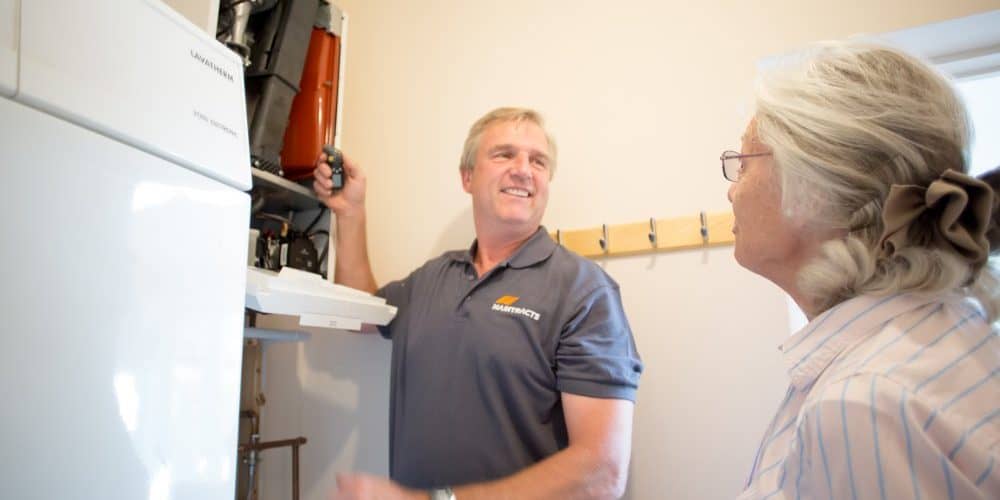As we approach the winter solstice, which typically takes place every year on the 21st December, we prepare ourselves and our homes for the cold snaps that will undoubtedly start to become more impactful. Here are a few tips to help ensure your home is ready for winter and any winter storm that decides to pass through the UK
Be heat savvy
Winter weather can be brutal. As temperatures plummet, our heating bills go up which is tragic for both our energy bills and for the environment. Unless you use 100% renewable energy, the more you burn, the more fossil fuels are needed, and the more greenhouse gases will be produced. We all want to feel cosy and warm in our homes in the winter but before you vamp up the central heating system try to consider other ways to keep the cold weather out of your home.
The Energy Saving Trust state that in the UK, 22% of our carbon emissions currently come from our homes and in most households, half the money spent on fuel bills goes on heating and supplying hot water. So, as well as helping people save money on their energy bills, improving energy efficiency will have a positive impact on addressing the climate crisis.
Keeping your thermostat turned down can make an enormous difference. We recommend keeping your thermostat to between 18 and 21 degrees but turn it down by 1 degree C and you could cut your heating bills down significantly over the course of the year. In fact, a 1 degree drop could save you around 10% on your energy bill and if everyone in Great Britain turned their thermostat down by 1 degree, we would reduce energy bills by £640 million, while saving 3.5 million tonnes of carbon dioxide (CO²) per year [link to https://energysavingtrust.org.uk/new-research-finds-96-of-uk-homeowners-are-concerned-about-their-home-energy-efficiency-yet-one-in-five-arent-taking-simple-steps-to-improve-it/]
It is a good idea to think about which parts of your house really need to be heated and avoid leaving the heating on if you are planning on going away for more than a few days. Share baths where possible.
Insulate, insulate, insulate
Taking the time and effort to get your home insulated effectively will reward you with energy and money saving gains in the long term. If you have a lot of external walls to your property, you will be losing more energy than most. It also depends on whether your walls are solid (typically older houses built pre 1920s) or built with a cavity and therefore easier to insulate. Considering a third of all the heat lost in an uninsulated home, seeps through the walls, this is something to give thought to.
Insulating your roof will also help prevent heat escaping from your home (and ice dams from forming) as will insulating tanks, pipes and radiators, cylinder jackets, foam tubes that wrap around piping and reflector panels that slide behind radiators on external walls. In the unfortunate event of a burst pipe this winter, ensure you are well prepared on how to deal with a burst pipe and how to prevent it from happening again. Burst pipes are a huge inconvenience that if left untreated can lead to a whole host of other problems.
Draught proof windows and doors
A draughty window or door will let in the chilly air no matter how high you have your thermostat dial turned up. So, make sure to fill gaps around windows and door frames, invest in heavy duty curtains or interior window shutters. There is a fantastic choice of stylish draught excluders available to run along the bottom of doors.
Service your boiler
Avoid being without heat and hot water at all costs by having your boiler serviced regularly. A yearly boiler service can help spot issues before they start to become a problem and potentially cause your boiler to breakdown completely. If it’s too late for that, our emergency boiler repair service will save the day!
Conducting a little bit of home maintenance before the icy winter air really starts to set in can often go a long way. So, what are you waiting for? Start getting heat wise asap!

